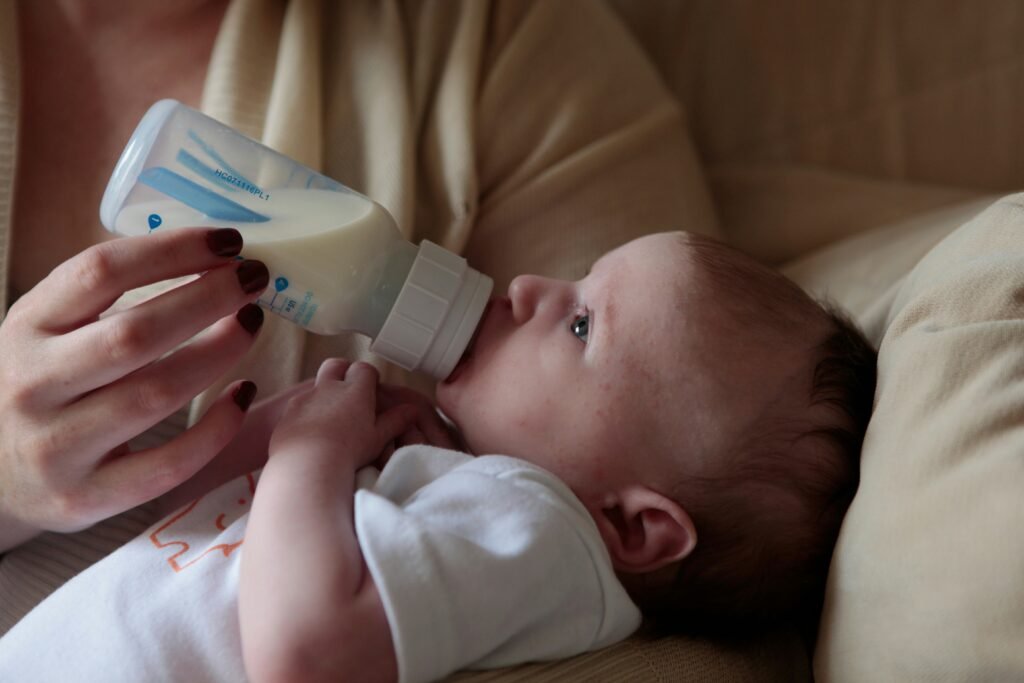Introduction to Baby Care
Bringing a newborn home can be simultaneously exciting and overwhelming for new parents. Navigating the world of essential baby care requires preparation, knowledge, and a whole lot of love. In this guide, we will delve into the essential aspects of caring for your little one and provide valuable advice to help you feel confident and empowered on this journey.
The Basics of Baby Care
Caring for a baby involves a myriad of tasks, from feeding and diapering to soothing and bonding. Understanding your baby’s needs and cues is fundamental in providing them with the best care possible.
Setting Up a Safe Environment
Creating a safe and secure environment for your baby is crucial for their well-being and development. From baby-proofing your home to ensuring that all items within reach are baby-friendly, safety should always be a top priority.
Essential Baby Gear Every Parent Needs
Investing in the right baby gear can make your parenting journey a lot smoother. From strollers and car seats to baby monitors and diaper bags, having the essential items on hand can help you navigate parenthood with ease.

Feeding and Nutrition
Proper nutrition is vital for your baby’s growth and development. Whether you choose to breastfeed or formula feed, understanding the pros and cons of each method is essential.
Breastfeeding vs. Formula Feeding: Pros and Cons
Breastfeeding provides numerous benefits for both the baby and mother, while formula feeding offers convenience and flexibility. Deciding which method works best for you and your baby is a personal choice that should be made with careful consideration.

Introducing Solids: When and How to Start
As your baby grows, introducing solid foods into their diet is a crucial milestone. Knowing when and how to start solids can help ensure that your baby receives the nutrients they need to thrive.
Managing Food Allergies in Babies
Food allergies are becoming increasingly common among infants. Being aware of potential allergens and observing your baby’s reactions can help you navigate this aspect of feeding with confidence.
Sleep and Routines
Sleep is a precious commodity for both babies and parents. Establishing a bedtime routine and addressing common sleep challenges can help promote healthy sleep habits for your little one.
Creating a Bedtime Routine for Baby
A consistent bedtime routine can signal to your baby that it’s time to wind down and prepare for sleep. Incorporating calming activities such as bath time and bedtime stories can help create a peaceful sleep environment.

Tips for Getting Your Baby to Sleep Through the Night
Getting your baby to sleep through the night is a common goal for many parents. Implementing soothing techniques and establishing a sleep-friendly environment can aid in achieving this milestone.
Dealing with Common Sleep Challenges
From night wakings to nap struggles, sleep challenges are a normal part of parenting. Understanding the reasons behind these disruptions and implementing strategies to address them can help improve your baby’s sleep quality.
Hygiene and Diapering
Maintaining proper hygiene and ensuring your baby stays clean and comfortable are essential aspects of baby care. Knowing how to bathe your baby and change diapers can make these tasks much more manageable.

The Ins and Outs of Diapering
Diapering is a routine task that every parent will become intimately familiar with. Knowing how to change diapers efficiently and prevent diaper rash can help keep your baby dry and happy.
Preventing Diaper Rash and Skin Irritations
Diaper rash is a common skin irritation that can cause discomfort for your baby. Taking preventive measures such as using diaper cream and changing diapers frequently can help reduce the risk of diaper rash.
Health and Safety
Ensuring that your baby remains healthy and safe is a top priority for every parent. Recognizing signs of illness, baby-proofing your home, and staying up-to-date on vaccinations are crucial steps in safeguarding your baby’s well-being.

Recognizing Signs of Illness in Babies
Babies are unable to communicate when they are feeling unwell, making it important for parents to be vigilant in recognizing signs of illness. Monitoring your baby’s temperature and behavior can help you identify potential health concerns early on.
Baby-proofing Your Home: Common Hazards to Look Out For
Babies are naturally curious and prone to exploring their surroundings. Baby-proofing your home by securing furniture, covering electrical outlets, and removing potential hazards can prevent accidents and injuries.
Vaccination Schedule and Importance of Immunizations
Vaccinations are essential for protecting your baby against serious diseases. Following the recommended vaccination schedule and staying informed about the benefits of immunizations can help keep your baby healthy and safe.
Conclusion
Caring for a new baby can be a challenging yet rewarding experience. By equipping yourself with knowledge, patience, and the right tools, you can provide your little one with the care and love they need to thrive. Remember, each baby is unique, and there is no one-size-fits-all approach to parenting. Trust your instincts, seek support when needed, and enjoy the journey of parenthood.
Recap of Key Points
* Baby care involves a variety of tasks, from feeding and diapering to sleep routines and safety precautions.
* Proper nutrition, sleep habits, and hygiene practices are crucial for your baby’s well-being.
* Recognizing signs of illness, baby-proofing your home, and staying current on vaccinations are essential for ensuring your baby’s health and safety.
Final Words of Advice for New Parents
As new parents, it’s normal to feel overwhelmed and uncertain at times. Remember that you are not alone, and there is a wealth of resources and support available to help you navigate the challenges of parenting. Cherish the moments with your baby, seek guidance when needed, and trust in your ability to provide the best care for your little one.
Resources for Further Reading and Support
* American Academy of Pediatrics: https://www.aap.org/
* Centers for Disease Control and Prevention: https://www.cdc.gov/
* La Leche League International: https://www.llli.org/
FAQs
* Q1. How often should I bathe my baby?
* Q2. What should I do if my baby is not gaining weight?
* Q3. When should I start baby-proofing my home?
Remember, every baby is unique, and it’s okay to seek advice and support when needed. Trust your instincts, stay informed, and enjoy the journey of parenthood!



